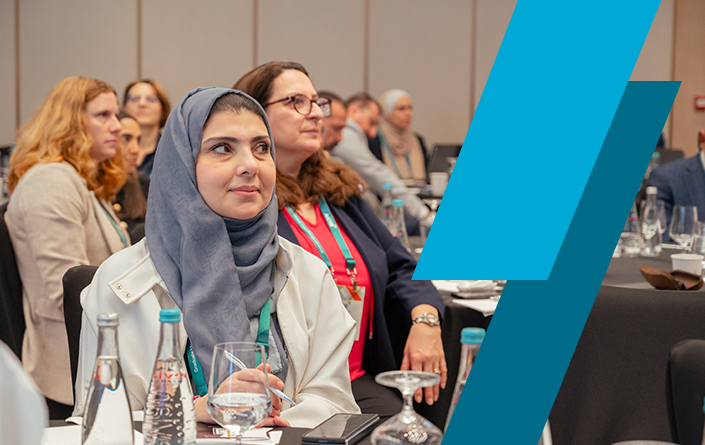Developing Societal Impact Leaders
- Recent global events have propelled organizations to take a stronger position in leading societal impact, including expanded expectations among organizational leaders to prioritize and drive progress in this area.
- Intrapersonal competencies of a societal impact leader include developing knowledge around societal impact issues, cultivating a deeper self-understanding, and recognizing big-picture priorities within their work.
- Interpersonal competencies of a societal impact leader include exhibiting a growth mindset, following a human-centered approach to leadership, and sharing knowledge with others.
Organizations are increasingly called on to create and prioritize positive societal impact (SI) across their operations, products, and services. Leaders of this movement will need an expanded set of competencies to effectively meet new demands. As members of society grow energized by global events and trends, the timeline for creating impact becomes accelerated, compelling businesses to integrate societal impact into their strategies.
“It's been a journey of moving this work … from the fringes into the core business and doing that in a way that’s not competing with the core business but ultimately supplements, complements, and improves the existing business strategy.” —Jeff Terry, Vice President, Corporate Social Responsibility & Sustainability at GAF
AACSB engaged the Leadership Research Institute (LRI) to embark on an exploratory study to better understand the competency needs of impactful leaders and the opportunities for business schools to be a driving force in developing those competencies. Conversations with 24 business leaders provide insights into the current societal impact landscape as well as SI priorities among organizations. Findings from that research will inform AACSB’s ongoing work in building a new societal impact leadership framework and competency structure for emerging leaders.
Competencies for Organizations Adopting Positive Societal Impact Objectives
The role of organizations and their leaders in creating positive impact has profoundly expanded alongside the evolving perception of societal impact. What was once a fringe issue for organizations has become mainstream, particularly as numerous societal events have helped accentuate the need for change.
Research suggests that for organizations to have societal impact, they need to take the following actions:
- Prioritize self-awareness by becoming more mindful of their values, reflecting on their ethos, and defining their goals while creating systems to accurately measure their progress toward societal impact objectives internally and externally.
- Internalize their commitment to making a positive societal impact by embedding societal impact into the organization’s mission and culture. A comprehensive approach is pivotal to success, starting with leadership and ultimately involving all employees in the organization.
- Have the courage to act. Organizations must take steps to pivot from commitment to action, which requires that they move out of their comfort zone and take calculated risks—including the potential of failure.
- Nurture the growth and development of their people in order to sustain action. When organizations prioritize the health and well-being of employees, they also promote within them a growth mindset.
- Integrate a global vision with local action by keeping local stakeholders and beneficiaries at the center of planning. Positive societal impact requires organizations to be ingrained in the communities they are trying to reach.
|
What Competencies Do Societal Impact Leaders Need to Be Successful?
|
Being a successful societal impact leader requires both an intrapersonal and interpersonal approach.
Becoming an impactful leader is a personal process as much as one between a group of individuals. For leaders to inspire teams of people to create organizational change, they must invest in themselves—understand who they are, what they value, and how they can leverage their unique talents to meet objectives. Establishing one’s own authenticity, environmental and self-awareness, and personal compass lays the foundation for how an SI leader navigates the external world.
Successful SI leaders exhibit a growth mindset, take a human-centered approach to leadership, and share their knowledge with others.
The Internal Work
- Leaders must achieve a deep understanding of societal impact, from gaining exposure to a variety of social issues, to driving action to address these issues, to building strong partnerships outside of the organization.
“I think we’ve really shifted now into a new paradigm where sustainability, or awareness and leadership on sustainability, is seen increasingly as a core set of skills for a business leader. Any executive who is illiterate in this area, I think, has a very short shelf life.” —James Gomme, Director, Equity Action at World Business Council for Sustainable Development
- Leaders can gain self-awareness by engaging in self-reflection activities and demonstrating a commitment to self-improvement. They must be transparent about what their values are. This understanding of themselves helps shape their authenticity as a leader, which is critical for building strong and impactful relationships with others.
- Successful SI leaders can effectively adapt to the changing demands of the marketplace by monitoring the organization's needs and those of its stakeholders. Leaders must also be adept at collaborating with other leaders and creating space for a multitude of contributions to societal change.
The External Work
- SI leaders must exhibit a growth mindset, which requires an openness to new perspectives. Leaders must be humble about what they know (and do not know) and find ways to facilitate interactions with others and harness their creativity to innovate.
“How do we heal the people, the communities, the environment, in cases where our organizations have contributed to that harm?” —Julia Firestone, Social Impact Consultant
- A human-centered approach to leadership focuses on leading people, not projects. SI leaders must act with a greater sense of humility by exhibiting a willingness to listen to others and a natural curiosity about people’s diverse experiences.
- SI leaders must share their knowledge with leaders around them, which requires them to adopt a “mentor mindset”—investing in others and helping mentees discover new ideas and experiences. They must also be intentional about assessing and selecting employees based on the numerous capabilities required for making societal impact and leading change.
Competencies and Recommended Actions for Societal Impact Leaders
Intrapersonal-Focused Competencies |
| These competencies focus on cultivating a deeper understanding of self and how internal development in understanding and prioritizing SI can contribute to broader change. |
|---|
| Actions for SI Leaders |
|
Developing a deeper understanding of societal impact
|
|
Developing a deeper understanding of self
|
|
Developing an understanding of the bigger picture
|
Interpersonal-Focused Competencies |
| These competencies focus on how SI leaders work with others across their teams and communities to influence organizational shifts needed to create positive societal impact. |
| Actions for SI Leaders |
|
Exhibiting a growth mindset
|
|
Taking a human-centered approach to leadership
|
|
Sharing knowledge with others
|
What’s Next?
To achieve the societal impact they desire, leaders must build multidimensional partnerships with a broad set of entities and stakeholders, including business schools. Organizations need partners that can challenge them to grow and develop in critical ways.
Factors for Promoting Enduring Partnerships Focused on Societal Impact
|
In forging a world where society values authenticity, leadership, and collaboration, the importance of lifelong learning is paramount. As current and emerging leaders are increasingly assessed on their competencies and actions related to societal impact, they will need greater opportunities for developing such capabilities. Business schools are hearing the calls to cultivate leaders with socially responsible mindsets throughout all stages of learning, and well into their careers; AACSB business schools are model partners for heeding this call.
About the Research
The insights shared in this brief were informed by a study that AACSB commissioned from research partner Steven M. Rumery at the Leadership Research Institute. The study consisted of an environmental scan of societal impact developments, with findings shared in June 2022. The 24 senior leaders who were interviewed for the study work in a variety of roles spanning global, local, for-profit, nonprofit, and advisory organizations across a wide array of industries.
As the world’s largest association for business education, AACSB is driving positive societal impact through its accreditation standards and global network of more than 1,700 members in over 100 countries and territories. To create a new generation of societal impact leaders, AACSB is collaborating and partnering with the world’s business leaders, government officials, changemakers, thought leaders, and social entrepreneurs, to change the trajectory of business education with a focus on purpose, profit, people, and planet for the betterment of society. Learn more and stay up to date with AACSB’s work in this area at aacsb.edu/societal-impact.






